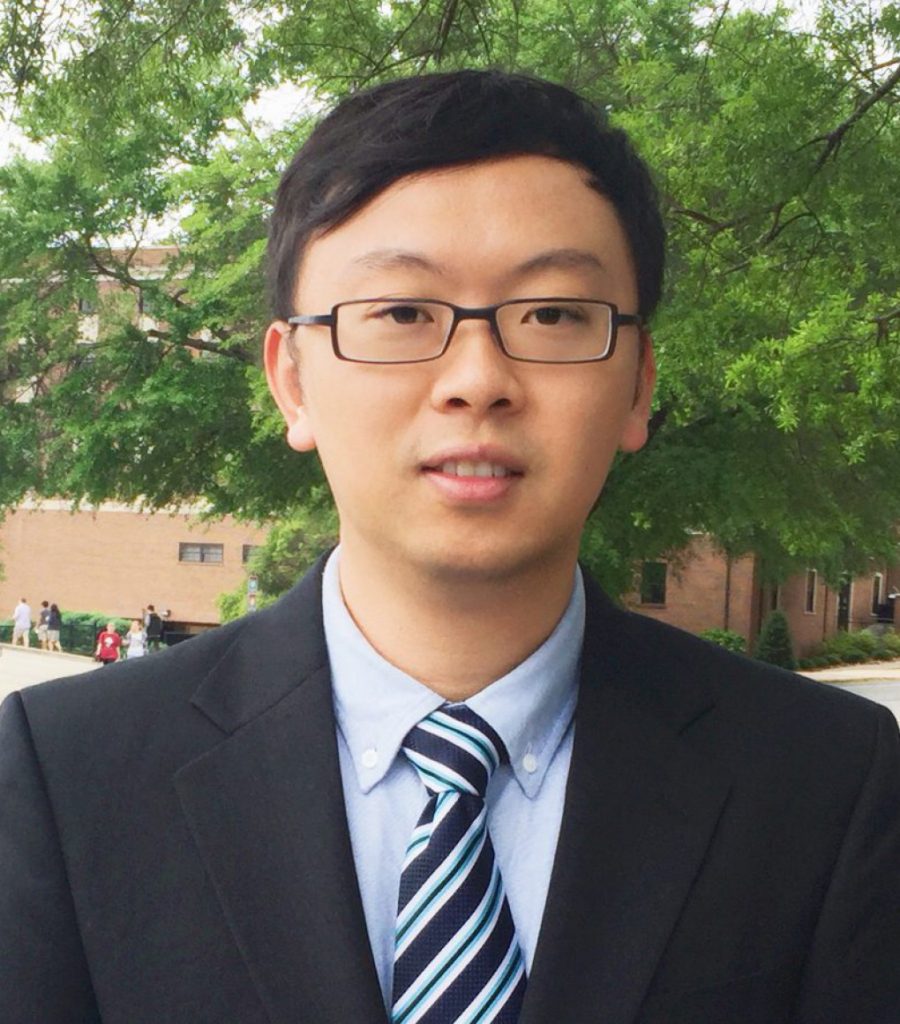Photo of Dr. Ke Bao, Assistant Professor of Electrical Engineering. Provided by Milligan College.
At March 14’s SGA meeting, President Greer announced that the Milligan Board of Trustees has voted to develop “artificial students” to enroll in Milligan programs.
Greer told the SGA members that the board had developed software to perform the scholastic activities of Milligan students, and that this fall, the board will enroll prototype students in the humanities program for beta testing. Some SGA officers expressed worries about artificial students, however, plans to discuss the matter were dropped after Greer announced the Board of Trustees’ planned revision to the school alcohol policy.
The Board’s proposal, called BUFF v2.0, outlines a plan to simulate student performance with computers. In this plan, artificial students will be programmed into programmable logic controllers (PLCs) and given sensors to detect light, sound, touch, temperature, proximity, orientation, vibration, atmospheric pressure, infrared radiation, electric flux, radioactive isotopes and the scent of coffee.
When interviewed by a staff reporter, trustee and former IBM executive Ron Sewell said that the Board had been pleased with the project’s results thus far. “Our artificial student prototypes can already outperform most students in Milligan themed activities,” said Sewell.
“In a sample of ten organic and ten inorganic students, only three organics could completely recite the Alma Mater song while all ten electronic students could replay the song verbatim.”
According to Sewell, the idea came up after the board explored opportunities to use artificial intelligence (AI) to study the school’s performance. The Board at the time was discussing ways to use machine learning to predict student performance in the classroom.
“We had an epiphany while experimenting with the simulations. At first, we thought we were just working with a new kind of analysis- and then it hit us what we had really created here,” said Sewell. “If we could use these machines to simulate student performance, we could just as easily use them to perform in the place of students.” The board believes that artificial students will easily outperform their human classmates and raise the college’s ratings.
When the College President was asked why he believed Buff v2.0 would make a great addition to the Milligan community Greer responded,
“The benefits would be tremendous. They won’t need food. They won’t need parking spaces or residence halls. Imagine the level of play we can expect from our eSports team! We’ll just need adequate power and a place to recharge them periodically,” Greer said. “And, they won’t break any rules and won’t ever complain! Seems to me like it will be a collegiate utopia.”
The board’s proposal raises several concerns. One obvious concern for the program is how artificial students will be able to pay tuition fees. On this issue, Sewell said, “We’re not worried over whether artificial students will be able to pay off their student loans. There’s no telling the kind of complex problems an artificial student with a background in the liberal arts and biblical scholarship will be capable of solving. Such students are going to make fortunes in the data mines.”
The Stampede consulted Dr. Ke Bao, assistant professor of electrical engineering and an expert in AI. While Bao asserted that computers would make excellent students, he also commented on several of the challenges the project will face. “Computers can’t tell context,” Bao said, concerning current limitations of machine learning. Bao explained that more possibilities for AI students will come if artificial students are connected to the internet. Internet connectivity would allow BUFF v2.0 students to store and retrieve information at online address. It should be noted that the faculty have not expressed any position on whether an artificial student could be punished for cheating on a test if ever caught accessing information it filed in an online database. Concerning the prospect that professors could soon be teaching internet-connected computer systems, Bao said, “They should be the teachers… It is very scary for an instructor.”
To prepare BUFF v2.0 for the humanities program, Milligan humanities and composition professors have been asked to compile a list of written works to feed into the writing style of Buff v2.0. The process works similar to the AI that wrote Botnik studios’ “Harry Potter and the Portrait of What Looked Like a Very Large Pile of Ash”. However, with limited storage space on the prototypes’ built-in ROM, humanities professors are in disagreement about what works should be used.
Tim Dillon shared some of his entries including, Flannery O’Connnor’s short stories, Dune by Frank Herbert, Anna Karenina by Fyodor Dostoevsky, Wendell Berry’s essays and Huckleberry Finn by Mark Twain. Dillon also recommends that artificial students be familiarized with the works of Isaac Asimov.
The prospect that artificial students will be able to mimic the interpersonal skills of organic students raises a concern for some students of how they will be able to tell another human from artificial intelligence. To address this concern, the Stampede contacted Dr. Theresa Carter, Associate Professor of computer information systems.
“Basing the experiment on the question and answer game “Can Machines Think” by Turing as the research model, we can anticipate 33% of the college campus will not be able to tell the differences in the robot student from a human student. In fact, the robot student is expected to fool all of the humanities and business faculty.”
This story is part of a contest for our April Fools edition!

